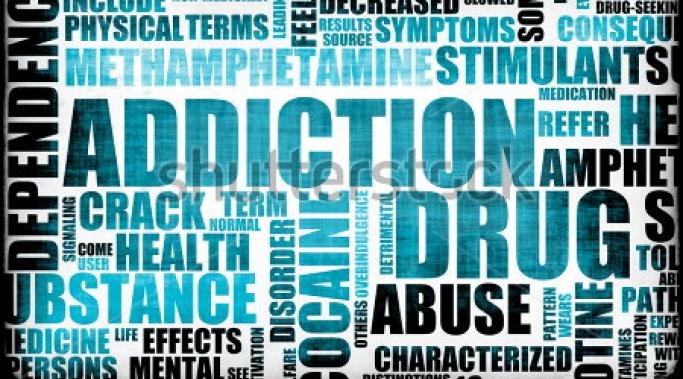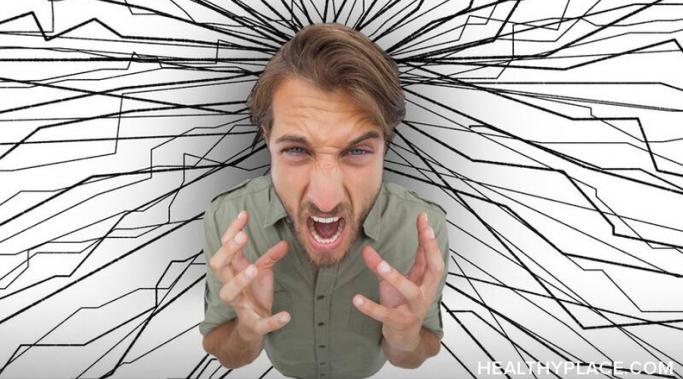This week my life closely resembles one of those old country and western songs. You know the ones. Basically everything that could go wrong has, and even the dog doesn’t want to get close to me.
I’m sitting alone in my four bedroom home, contemplating the condition of my life and wondering just where this is taking me.
I’m very fortunate that I have people in my life, specifically my wife and kids, who truly love me. They love me enough to tell me I need help and they want me to get it. Until I do, they’ve decided that for their own well being, they think living apart from me is the best thing for them right now.
Medication and Treatment
If you are a person with mental illness, it is important that you feel safe with your doctor or psychiatrist. Your relationship with your doctor is one of the most important relationships in your life. This person will hear some of the most intimate details of your life. They will help you decide what medications to take, at what dosage, to help you. Arguably, they will know you as well as your significant other does. Your doctor will have the power to hospitalize you against your will if they determine you to be a danger to yourself or others. So, do you feel safe with your doctor?
One of the worst things about having a mental disorder is the symptoms the mental disorder causes. These symptoms are the cause of much suffering for those of us who have received a mental health diagnosis. We face our symptoms every day, sometimes every minute of the day. They can cause us to see the world and the circumstances of life very differently than people who aren’t mentally ill.
Because we sometimes perceive things this way, we occasionally come into conflict with people. It’s often family who don’t comprehend our behavior, especially since they see us at our worst. Misconceptions can, and do, happen, frequently, on both sides. Of course, it’s not only we who misperceive. Misperceptions can lead to stereotyping, part of mental health stigma. Let’s look at some examples of these stereotypes.
The source of much of our discomfort lies in what we find unacceptable. I’m heartbroken because I don’t want to accept that person I loved is gone forever. I’m anxious because I don’t want to accept that I might actually be safe, that no one is trying to purposely hurt me. I’m sad because I have difficulty accepting that there are actually good and lovely things in this world, as well as the bad things. I don’t want to accept that I need to be on this medication now, and maybe for life. All these things, and many more, I find unacceptable.
Initially, the title of this blog was "A Recipe For Disaster..." But I used to really (stress this) enjoy a few cocktails. Or an entire bottle of cocktail mix. And that nearly killed me.
That aside, in this blog I want to focus on why those living with mental illness may abuse substances, what some of these substances are, and the impact this can have when we are working to recover from mental illness.
Why Might People With Mental Illness Abuse Substances?
I remember the first time I was told I had bipolar disorder. I was twelve years old and confused. I was further baffled when my psychiatrist told me I would need to start taking psychiatric medication. I asked her what kind. I was certain that one pill--similar to the vitamins ground in my cereal each morning when I refused to swallow them--would be the same. I was told, in no uncertain terms, that it would be wonderful (!) if the first bipolar medication worked. Of course, it did not, and it does not for most of us.
I had a tough year. I typically have a lower mood once October kicks me in the ass, but this year was worse. I watched seven seasons of Lost in one month--granted I had never seen it before. But still! I even went as far as to abandon writing this blog. I was not thinking clearly. Writing this blog is an important part of my life.
As usual, you are probably wondering where I am going again. Yes, the woman who wrote a memoir on mental illness and addiction should perhaps stop talking about her own misery. But this morning--back on my feet again--I remembered that time and the words "solitary confinement" came to mind.
I know. I know. You might be thinking, "Is she serious? I did not lose my entire memory!" Yes, I am serious and I will work to explain why.
Let me preface this post by telling you that when you live with a mental illness you know why it's so hard. It can feel impossible. But have you ever sat down and really thought about it? Thinking about things, writing them down, can allow us to make sense of something that is often complicated and hard to understand.
I came up with this topic when I was in a state of serious depression--less than a month ago. I was certain I would never become well. Those of you who live with a mental illness understand this on a very deep and personal level.
While I was glued to the couch I started thinking about how much time I spend exhausted--some days less and some more. Mental exhaustion and physical (or both) can define a large part of our lives.
Without further explanation (coffee in hand) let's explore this topic.








